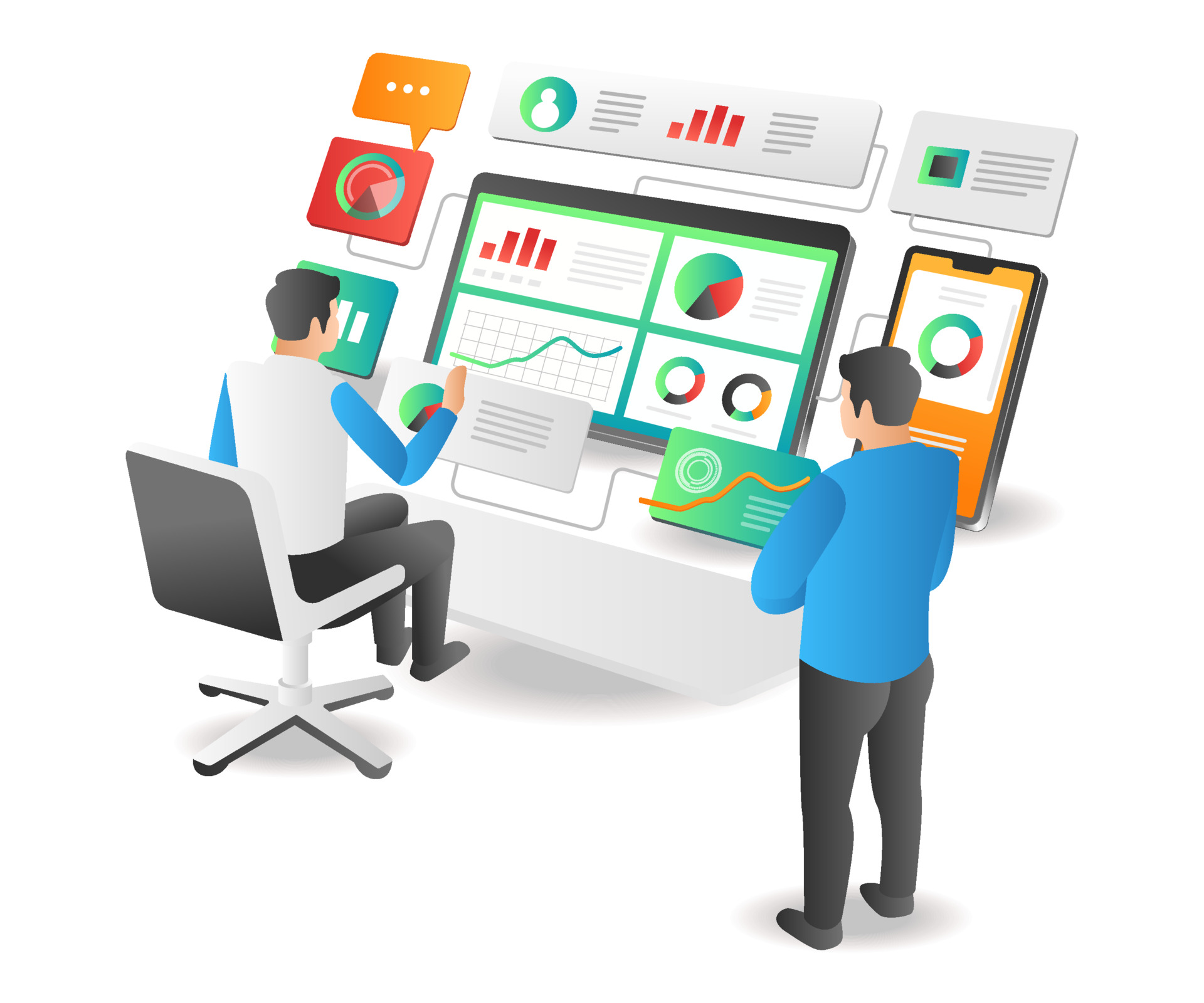Application Programming Interfaces (API) have become indispensable in modern business environments, enabling seamless integration between enterprise resource planning (ERP) systems and other critical business platforms. As companies increasingly rely on real-time data synchronization and process automation, API-driven integration provides flexibility, scalability, and enhanced efficiency.
This comprehensive guide will explore how APIs are transforming ERP integration and driving innovation. We’ll cover key topics like:
- Understanding the role of APIs in connecting today’s technology stacks
- Streamlining operations and boosting productivity through integrated data flows
- Improving the customer experience via unified cross-platform interfaces
- Securing API-enabled ERP integrations
- Leveraging APIs for cloud, mobile, and IoT connectivity
- Supply chain improvements and e-commerce integration
- Financial reporting automation and analytics
- Collaboration enhancements and future trends
Whether you’re an IT leader, ERP specialist, or business executive, this guide will provide actionable insights on successfully leveraging APIs to revolutionize your ERP integration and business processes.
I. Understanding the Role of API in ERP Integration
API (Application Programming Interfaces) are sets of protocols and tools that enable different software systems to communicate with each other. They act as intermediaries that connect applications and allow the transfer of data and instructions between them.
In the context of ERPs (Enterprise Resource Planning systems), API facilitates integration by establishing predefined connections through which ERP platforms can share data and processes with other business systems like e-commerce, CRM, analytics, and more.
ERP integration has evolved significantly, from early methods like batch data transfer and point-to-point integration, to modern API-driven approaches. API offer substantial advantages over traditional integration techniques:
- Real-time synchronization – API enables continuous data flow between connected systems, ensuring information is always up to date across the technology stack.
- Flexibility – API allows ERPs to integrate with diverse systems and accommodate changing business needs through their modular nature.
- Scalability – Cloud-based APIs can handle growing data loads and integration complexity as organizations scale.
- Speed – API integrations are fast to implement compared to legacy approaches.
- Enhanced capabilities – APIs facilitate complex integrations involving advanced functions like AI and IoT.
Overall, API-centered integration maximizes the value of ERP investments by allowing businesses to leverage data and capabilities across systems.
II. Real-time Data Synchronization and Business Process Automation
One of the most impactful benefits of API-driven ERP integration is enabling real-time data flows between connected systems like ERP, CRM, e-commerce, and analytics platforms.
Rather than batched data that is hours or days old, APIs allow instant data sharing as information is generated or updated in any integrated system. This creates a “single source of truth” across the technology ecosystem.
API integration also unlocks significant process automation opportunities by linking systems together. Workflows that once involved manual handoffs can be streamlined for efficiency.
The order-to-cash cycle can be radically accelerated by automating order ingestion, fulfillment status updates, inventory adjustments, invoicing, and revenue recognition across integrated platforms.
Overall, API-enabled real-time data and process orchestration between ERP and other systems is accelerating digital transformation across industries. It brings agility, responsiveness, and efficiency to a whole new level.
III. Enhancing Customer Experience and Business Intelligence
Delivering exceptional customer experiences is critical for modern businesses, and ERP integration can play a key role through:
- Unified customer data – APIs allow customer information to be accessed across different systems in real-time for a complete view.
- Contextualized interactions – Customer service agents can leverage integrated ERP data like order history and product specs during support calls.
- Hyper-personalization – Real-time data synchronization enables personalization across channels based on individual preferences and behaviors.
- Faster issue resolution – Agents have quick access to required customer data from the ERP system to resolve issues faster.
Additionally, the analytical potential of integrated ERP data unlocks enhanced business intelligence capabilities that can drive growth. By combining information across platforms, decision-makers gain multidimensional insights. The possibilities are endless.
IV. API Impact on ERP Customization, Flexibility, and Scalability
ERP systems tailored to unique business needs are a common requirement, and APIs play an important role in enabling customization through:
- Modular approach – APIs allow integration of specialized third-party capabilities like payroll, tax calculation, and more into ERP platforms.
- Flexible connectivity – APIs enable linking ERPs with other custom in-house or niche external systems via customizable integration workflows.
- Faster deployment – New capabilities can be rapidly integrated into ERP environments using API connectivity.
Similarly, API-based integration lends greater flexibility to ERP systems as business needs evolve. New touchpoints and technologies can be connected to core ERP platforms through APIs much faster than traditional methods.
The scalability of cloud-native API integration also provides flexibility by allowing capacity to be provisioned on demand. By removing data silos and monolithic architectures, APIs enable ERP environments that can scale dynamically.
V. Security Considerations in API-based ERP Integration
While API-driven integration delivers immense value, it also needs to be implemented with security in mind. Some key aspects to consider are:
- Authentication – Secure API access by validating identities and establishing access controls. OAuth 2.0 is a popular standard.
- Encryption – Protect data in transit and at rest through standards like SSL/TLS for data encryption.
- Monitoring – Actively track API traffic patterns to identify anomalies and potential threats.
Rate limiting – Throttle excessive API requests to prevent denial-of-service attacks.
- Input validation – Verify and sanitize any input passed via APIs to guard against injection attacks.
- Compliance – Ensure API security controls meet relevant regulatory compliance requirements.
With proper security controls and governance, businesses can securely unlock the benefits of API-based ERP integration while safeguarding critical systems and data.
VI. Cloud-based and Mobile ERP Integration
APIs have become the standard for integrating ERP systems with cloud-based software solutions and mobile apps:
- Cloud integration – APIs enable connecting ERP platforms to cloud solutions like CRM, HRMS, analytics, and more.
- Accessibility – Mobile apps leveraging ERP APIs provide employees with remote access to critical business data and capabilities.
- Real-time data – Field staff empowered with mobile ERP access via APIs can input data like orders, inventory counts, etc. instantaneously.
- New capabilities – Mobile apps can apply ERP-integrated machine learning for real-time recommendations and decisions during customer interactions.
While cloud and mobility offer new opportunities, potential drawbacks like network dependencies, security risks, and device fragmentation should be evaluated.
Overall though, API-enabled cloud and mobile ERP integration are critical capabilities for the modern digital business. The future will see massive growth in these areas as organizations become truly boundaryless.
VII. Supply Chain Management and E-commerce Integration
For retailers, manufacturers, and distributors, integrating ERP and supply chain management (SCM) systems via APIs enables:
- Real-time inventory visibility – Stock levels and warehouse information is synchronized across systems.
- Automated forecasting – ML-enabled demand prediction leveraging sales data across channels.
- Dynamic replenishment – Inventory levels automatically trigger purchase orders and production schedules.
- Delivery optimization – Integrated logistics and traffic data enable intelligent shipment routing.
eCommerce integration powered by APIs also allows a unified view across online and brick-and-mortar sales channels:
- Omnichannel order management – Orders from any channel are synchronized for inventory allocation, fulfillment, delivery etc.
- Fraud analysis – Shared customer data aids real-time fraud detection during transactions.
- Personalized promotions – Browser and purchase history shared via APIs enables targeted cross-channel campaigns.
VIII. Financial Process Automation and Reporting
ERP systems contain a wealth of financial data that can help fuel data-driven decisions – but only if efficiently accessed and analyzed. This is where API integration excels:
- Automating workflows – Invoice generation, revenue recognition, expense reimbursement, and other financial processes can be streamlined and automated across integrated systems.
- Accelerating reporting – Direct ERP data access via APIs allows fast creation of financial reports. Integrated BI tools further enhance analysis capabilities.
- Strengthening compliance – Automated controls and reconciliation across financial platforms improve auditing and compliance.
- Enabling predictive analytics – Historical financial data combined with external datasets enables cash flow forecasting, risk analysis, etc.
IX. API Management Strategies for Successful ERP Integration
To maximize benefits and ROI, API integration initiatives require upfront planning and continuous management:
- Documentation – Maintain detailed documentation covering API technical specifications, usage guidelines, release notes etc.
- Dev portals – Provide developers resources to learn APIs, try them out, and get integration support.
- Testing – Rigorously test APIs and conduct integration testing to ensure quality. Implement mocks for early testing.
- Monitoring – Gain visibility into API usage patterns, performance metrics, error rates and other operational insights.
- Security – Employ authentication, encryption, rate limiting and other best practices discussed earlier.
- Lifecycle management – Manage API versions, changes, deprecation and retirement through systematic governance processes.
X. Collaboration and Productivity Enhancements
The collective impact of API-driven ERP integration on business workflows and data access empowers employees and enhances productivity:
- Improved collaboration – Cross-functional teams can securely access unified information from multiple systems to align efforts.
- Process efficiency – Automated workflows and paperless processes powered by API integrations maximize productivity.
- Informed decisions – Real-time data availability enables faster and data-driven business decisions.
- Remote work enablement – Secure API access from anywhere allows flexible remote work arrangements.
- New capabilities – Workforce skills and productivity are augmented with integrated AI/ML capabilities.
Unlocking the True Power of API with Versa Cloud ERP
Versa Cloud ERP stands out as one of the foremost solutions for unlocking the benefits of API-driven integration across critical business systems. With its cloud-native architecture, Versa delivers real-time synchronization, automation, and unified data access across platforms to maximize operational efficiency.
Versa facilitates seamless API integrations with e-commerce, supply chain, analytics, IoT, and other essential technologies to create a truly connected enterprise. For manufacturers, distributors, and retailers, Versa enables omnichannel visibility and intelligent automation from procurement to fulfillment. Its comprehensive inventory, warehouse management, and 3PL logistics capabilities empower data-driven decisions across the value chain.
To experience Versa’s API integration capabilities and how they can transform your business workflows, schedule a free customized demo today. Versa’s experts can map out an API integration strategy tailored to your specific systems, processes, and future goals.
ERP systems are fundamental to the efficient management of a modern supply chain in the manufacturing sector. By integrating various business processes, ERP systems streamline operations, enhance visibility, and improve decision-making, making them indispensable tools for manufacturers aiming to stay competitive in today’s market.
Empower your business with the knowledge to navigate the realm of an Integrated ERP solution, specifically tailored to your business needs. Gain insights, streamline processes, and propel your financial management to new heights with this comprehensive guide
With Versa Cloud ERP’s Implementation guide learn how a business can ensure a successful ERP Solution Implementation. Navigate the complexities of implementation with confidence!
Effectively manage your financials, accounting, inventory, production, and warehouse management workflows with our award-winning ERP.
Let Versa Cloud Erp’s do the heavy lifting for you.
[widget id=”custom_html-40″]
[widget id=”custom_html-42″]
[widget id=”custom_html-30″]
Do Business on the Move!
Make your businesses hassle-free and cut the heavyweights sign up for the Versa Cloud ERP today!!
Join our Versa Community and be Future-ready with us.






